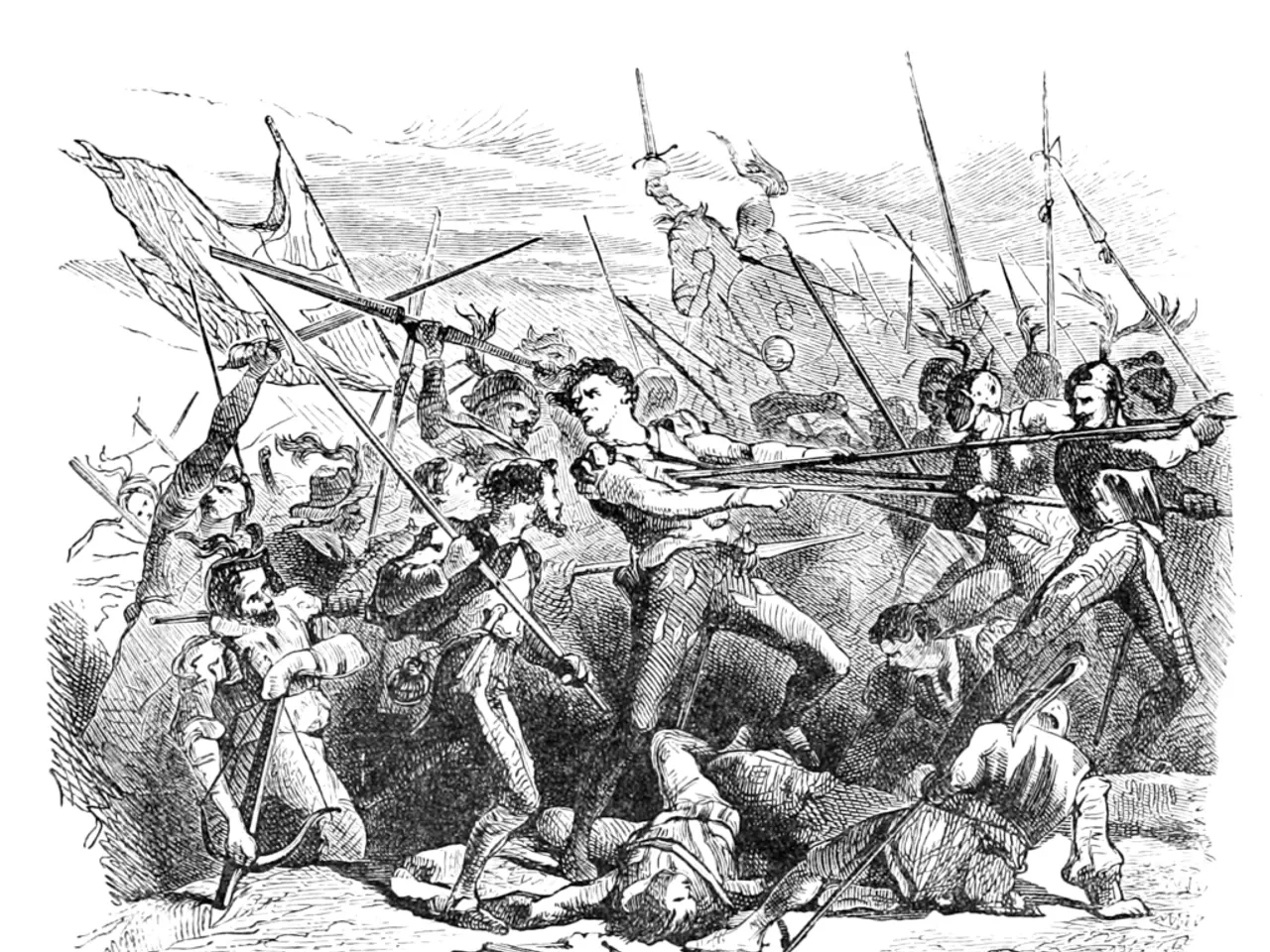Strengthening our union within the alliance is imperative
Germany's Black-Red Coalition Faces Challenges Amid Internal Tensions
The black-red federal government, led by Chancellor Friedrich Merz, has been in operation for 100 days. However, the coalition, composed of the Christian Democratic Union (CDU) and the Social Democratic Party (SPD), is facing significant challenges as it navigates internal tensions and external pressures.
Jens Spahn, the leader of the CDU/CSU faction, recently called for closer cooperation among coalition partners. In a speech, he emphasized the need for the coalition to find a common purpose and agree on what they can tolerate from each other. Spahn's statement was a clear indication of the political strategy of the black-red coalition in response to the far-right Alternative for Germany (AfD) party.
The Union faction, which became the largest group in the Bundestag after the 2025 elections with 28.5% of the vote, has been under pressure to regain economic credibility and stem the far-right's rise. On the other hand, the SPD, as coalition partners with the CDU/CSU, has faced criticism for its perceived left-leaning approach and hesitancy to cut back welfare, contributing to fears about growing public debt and an ineffective economic policy.
Recently, the Left party (Die Linke) has recovered somewhat, winning 8.8% and gaining ground primarily at the expense of Greens and SPD voters, potentially complicating SPD’s electoral prospects within the coalition spectrum.
Spahn's speech did not discuss the failed election of new constitutional judges in the Bundestag, a challenge that has strained the relationship between the coalition partners. SPD leader Barbara Bas described the trust in Spahn as "shaken," reflecting the ongoing tension between the two parties.
Despite these challenges, Spahn emphasized the commitment of the black-red coalition to success for the good of the country. Bas sees a need for further talks with the Union to address the issues arising from the failed election of constitutional judges and to find a resolution to the disagreements.
The black-red coalition, according to Spahn, is a response to the radical destructive strategy of the AfD. However, Spahn's emphasis on the coalition's commitment to success does not indicate any changes in the coalition's stance on future decisions or agreements.
As the black-red coalition continues to navigate these internal tensions, it remains to be seen whether they can deliver on their key election promises and regain voter confidence, particularly in the face of growing support for both the far-right and left-wing parties.
The policy-and-legislation agenda of Germany's black-red coalition, in response to the challenges they face amid internal tensions, is under scrutiny as Jens Spahn, the leader of the CDU/CSU faction, emphasized the need for the coalition to find a common purpose. This general news story reveals ongoing disputes, particularly regarding economic credibility and welfare cuts, between the coalition partners CDU/CSU and SPD, with the latter facing criticism for its perceived left-leaning approach.








